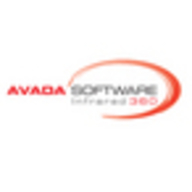

Avada Software Infrared360 and Datadog are competing products in IT infrastructure monitoring and management. Datadog appears to have an edge due to its extensive features and perceived value.
Features: Avada Software Infrared360 is known for its secure, agentless monitoring, comprehensive alert system, and role-based access control. Datadog offers real-time data analytics, extensive integration options, and advanced visualization tools, particularly beneficial in multi-cloud environments.
Room for Improvement: Infrared360 could enhance its integration capabilities and visualization features. Its licensing model may also benefit from more flexibility. For Datadog, simplifying its setup complexity, enhancing customer support for smaller organizations, and improving cost transparency could be beneficial.
Ease of Deployment and Customer Service: Avada Software Infrared360 offers straightforward agentless deployment with responsive and knowledgeable customer service. Datadog supports cloud-native deployment that integrates well with existing systems, though its setup can be complex and may require additional support.
Pricing and ROI: Infrared360 provides competitive pricing options suitable for tighter budgets, resulting in a positive ROI due to low operational costs. Datadog, with its tiered pricing, is costlier but often justified by its comprehensive feature set and scalability, particularly for larger enterprises.
| Product | Market Share (%) |
|---|---|
| Datadog | 5.5% |
| Avada Software Infrared360 | 0.4% |
| Other | 94.1% |

| Company Size | Count |
|---|---|
| Small Business | 4 |
| Midsize Enterprise | 5 |
| Large Enterprise | 5 |
| Company Size | Count |
|---|---|
| Small Business | 80 |
| Midsize Enterprise | 46 |
| Large Enterprise | 99 |
Avada Software specializes in Enterprise Middleware solutions. Founded by some pioneers in SOA, MQ and J2EE technology, Avada’s Flagship product, Infrared360, is a holistic & innovative private cloud enabled portal providing self-service administration, monitoring, load testing, auditing & statistical reporting for Enterprise Middleware including IBM’s middleware stack of MQ, IIB (message broker), WAS, and Datapower, as well as other applications servers such as JBoss, TC Server, Weblogic, and other messaging technologies such as Tibco EMS and Kafka*.
Accessed via any web browser on any device, Infrared360 is a single web application, yet scales to 2500+ endpoints without deploying anything (no agents, no scripts) to those endpoints.
Using trusted ‘spaces’ and delegated visibility and control, the portal uniquely provides different business units or even different application users virtual ‘spaces’ in which to work. Within those spaces are only the objects and resources the user has been granted visibility. Role policy dictates permissions on those resources.
It is the ONLY Enterprise Messaging Solution with a built in SOA engine that lets you leverage internal and external services for managing and correcting problems within your middleware messaging environment.
*Kafka coming soon
Datadog integrates extensive monitoring solutions with features like customizable dashboards and real-time alerting, supporting efficient system management. Its seamless integration capabilities with tools like AWS and Slack make it a critical part of cloud infrastructure monitoring.
Datadog offers centralized logging and monitoring, making troubleshooting fast and efficient. It facilitates performance tracking in cloud environments such as AWS and Azure, utilizing tools like EC2 and APM for service management. Custom metrics and alerts improve the ability to respond to issues swiftly, while real-time tools enhance system responsiveness. However, users express the need for improved query performance, a more intuitive UI, and increased integration capabilities. Concerns about the pricing model's complexity have led to calls for greater transparency and control, and additional advanced customization options are sought. Datadog's implementation requires attention to these aspects, with enhanced documentation and onboarding recommended to reduce the learning curve.
What are Datadog's Key Features?In industries like finance and technology, Datadog is implemented for its monitoring capabilities across cloud architectures. Its ability to aggregate logs and provide a unified view enhances reliability in environments demanding high performance. By leveraging real-time insights and integration with platforms like AWS and Azure, organizations in these sectors efficiently manage their cloud infrastructures, ensuring optimal performance and proactive issue resolution.
We monitor all Application Performance Monitoring (APM) and Observability reviews to prevent fraudulent reviews and keep review quality high. We do not post reviews by company employees or direct competitors. We validate each review for authenticity via cross-reference with LinkedIn, and personal follow-up with the reviewer when necessary.